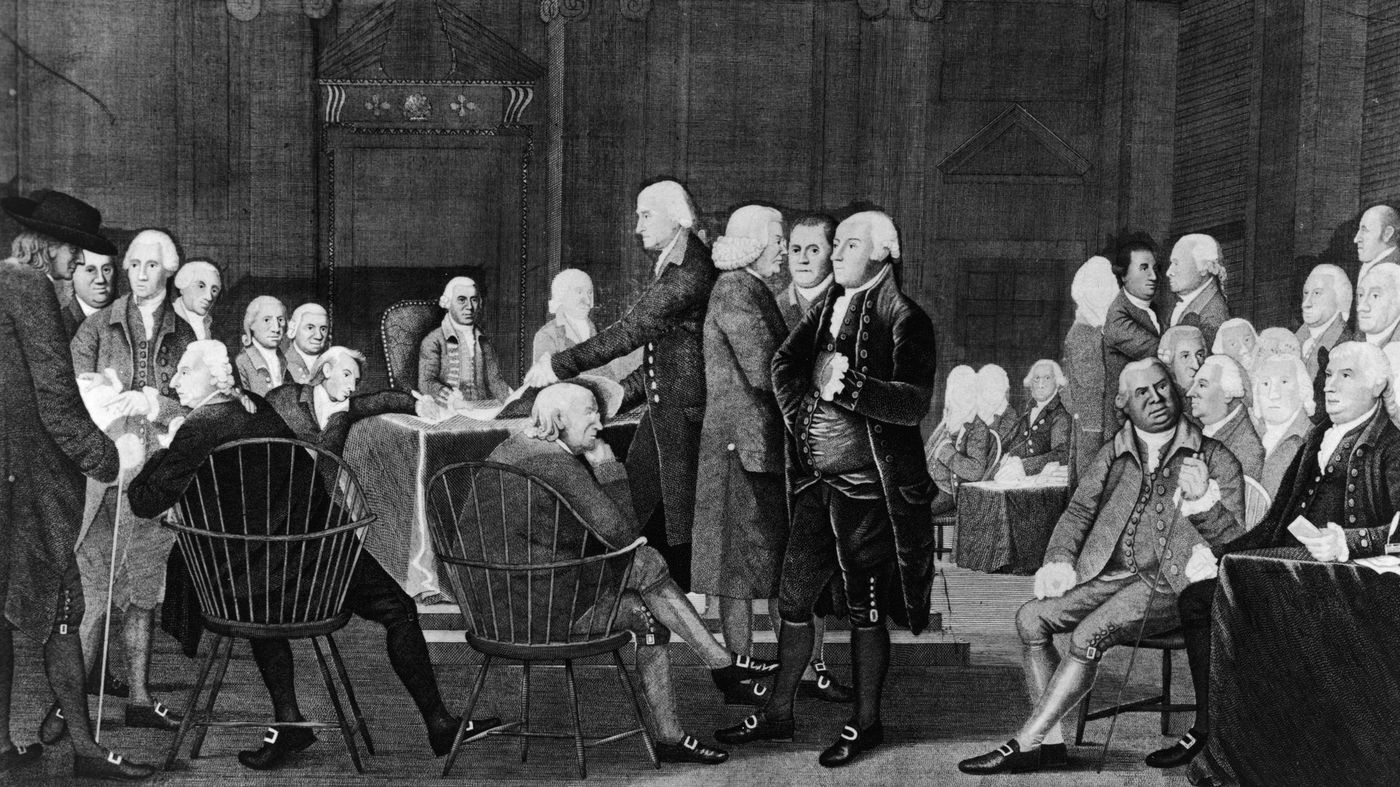
What was the First Continental Congress? The First Continental Congress was a gathering of delegates from twelve of the thirteen American colonies. Held in 1774, this meeting aimed to address growing tensions with Britain. Why did they meet? Colonists were upset about British laws and taxes, especially the Intolerable Acts. Who attended? Key figures like George Washington, John Adams, and Patrick Henry. What did they achieve? They agreed to boycott British goods and set the stage for future resistance. Why is it important? This congress marked the first unified action by the colonies against British rule, laying the groundwork for American independence.
The Gathering of the First Continental Congress
The First Continental Congress was a pivotal moment in American history. Delegates from twelve of the thirteen colonies met to discuss their grievances against British rule. Here are some fascinating facts about this historic event.
-
The First Continental Congress convened on September 5, 1774, in Philadelphia, Pennsylvania. This meeting marked the first time a significant number of colonies united to address common concerns.
-
A total of 56 delegates attended the Congress. These representatives came from every colony except Georgia, which needed British military support against Native American tribes.
-
The meeting took place at Carpenters' Hall. This building, located in Philadelphia, was chosen for its central location and ample space to accommodate the delegates.
Key Figures and Their Roles
Several prominent figures played crucial roles in the First Continental Congress. Their contributions helped shape the future of the United States.
-
George Washington, who would later become the first President of the United States, was a delegate from Virginia. His leadership and military experience were invaluable to the Congress.
-
John Adams, a lawyer from Massachusetts, was a vocal advocate for colonial rights. He later became the second President of the United States.
-
Patrick Henry, famous for his "Give me liberty, or give me death!" speech, represented Virginia. His fiery rhetoric inspired many delegates to take a stand against British oppression.
The Decisions Made
The First Continental Congress made several important decisions that laid the groundwork for American independence.
-
The delegates agreed to a boycott of British goods. This economic strategy aimed to pressure Britain into repealing its oppressive laws.
-
They drafted the Declaration of Rights and Grievances. This document outlined the colonies' objections to British policies and asserted their rights as Englishmen.
-
The Congress established the Continental Association. This network of committees enforced the boycott and ensured compliance across the colonies.
The Impact on American History
The actions taken by the First Continental Congress had a lasting impact on the course of American history.
-
The Congress helped to unify the colonies. By working together, the delegates fostered a sense of shared purpose and identity.
-
It set the stage for the Second Continental Congress. The success of the first meeting led to a second gathering in 1775, where the colonies took further steps toward independence.
-
The First Continental Congress inspired other colonial assemblies. Many local governments adopted similar measures to resist British rule.
Challenges and Controversies
Despite its successes, the First Continental Congress faced several challenges and controversies.
-
There was significant debate over the extent of resistance. Some delegates favored a more moderate approach, while others advocated for stronger measures against Britain.
-
The boycott of British goods was difficult to enforce. Some colonists continued to trade with Britain, undermining the Congress's efforts.
-
The Congress had no legal authority. As an extralegal assembly, it relied on the voluntary cooperation of the colonies and their citizens.
Legacy of the First Continental Congress
The legacy of the First Continental Congress continues to influence American politics and society today.
-
The Congress demonstrated the power of collective action. By working together, the colonies were able to challenge British authority and assert their rights.
-
It laid the foundation for the United States Constitution. The principles and ideas discussed at the Congress influenced the drafting of the nation's founding document.
-
The Congress inspired future generations of American leaders. Many of the delegates went on to play significant roles in the Revolutionary War and the formation of the United States.
Interesting Tidbits
Here are some lesser-known facts about the First Continental Congress that add depth to its story.
-
Benjamin Franklin was not a delegate. Although he played a crucial role in American independence, Franklin was in England at the time, advocating for colonial rights.
-
The Congress lasted for seven weeks. The delegates met from September 5 to October 26, 1774, before adjourning.
-
The delegates used secret codes and ciphers. To protect their communications from British spies, they employed various methods to encode their messages.
-
Some delegates were initially reluctant to attend. Fear of British retaliation made some representatives hesitant to participate in the Congress.
-
The Congress included a diverse group of individuals. Delegates ranged from wealthy merchants to humble farmers, reflecting the broad spectrum of colonial society.
-
The Congress's decisions were not universally popular. Some colonists, known as Loyalists, remained loyal to the British Crown and opposed the Congress's actions.
-
The First Continental Congress is commemorated in various ways. Monuments, historical sites, and educational programs help preserve the memory of this important event in American history.
The Legacy of the First Continental Congress
The First Continental Congress laid the groundwork for American independence. Delegates from 12 colonies gathered in 1774 to address grievances against British rule. This meeting fostered unity and set the stage for future revolutionary actions. The Continental Association was established, promoting a boycott of British goods, which demonstrated the colonies' collective resolve.
The Congress also paved the way for the Second Continental Congress, which eventually led to the Declaration of Independence. The decisions made during this pivotal time showcased the colonies' determination to seek self-governance and liberty.
Understanding the First Continental Congress helps us appreciate the early struggles and triumphs that shaped the United States. It reminds us of the importance of unity and the power of collective action in achieving significant change. This historic gathering remains a cornerstone in the story of America's fight for freedom.
Was this page helpful?
Our commitment to delivering trustworthy and engaging content is at the heart of what we do. Each fact on our site is contributed by real users like you, bringing a wealth of diverse insights and information. To ensure the highest standards of accuracy and reliability, our dedicated editors meticulously review each submission. This process guarantees that the facts we share are not only fascinating but also credible. Trust in our commitment to quality and authenticity as you explore and learn with us.


